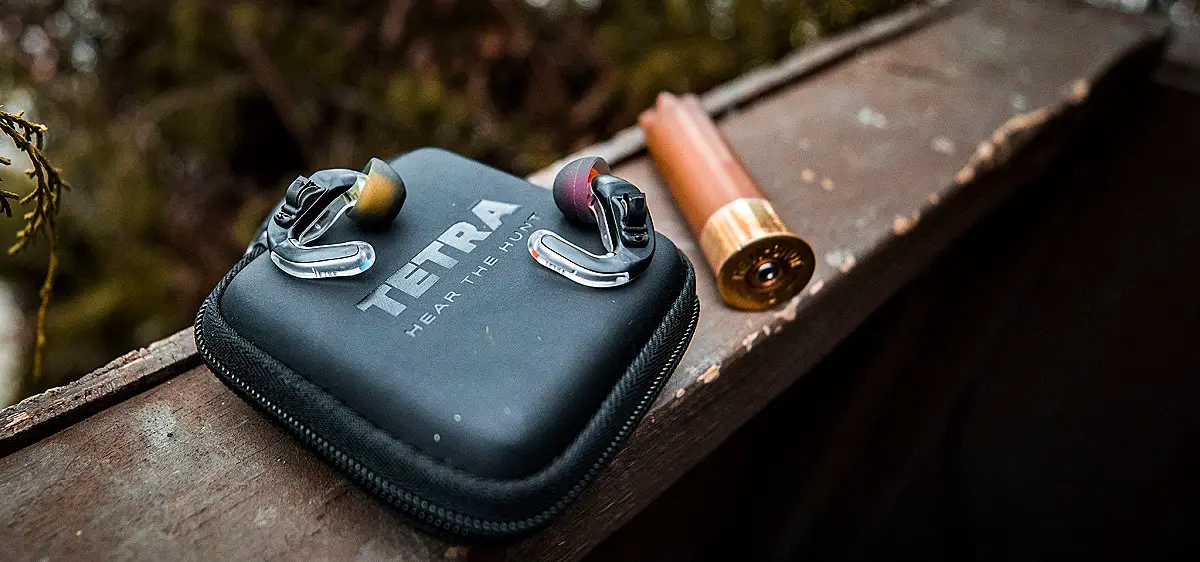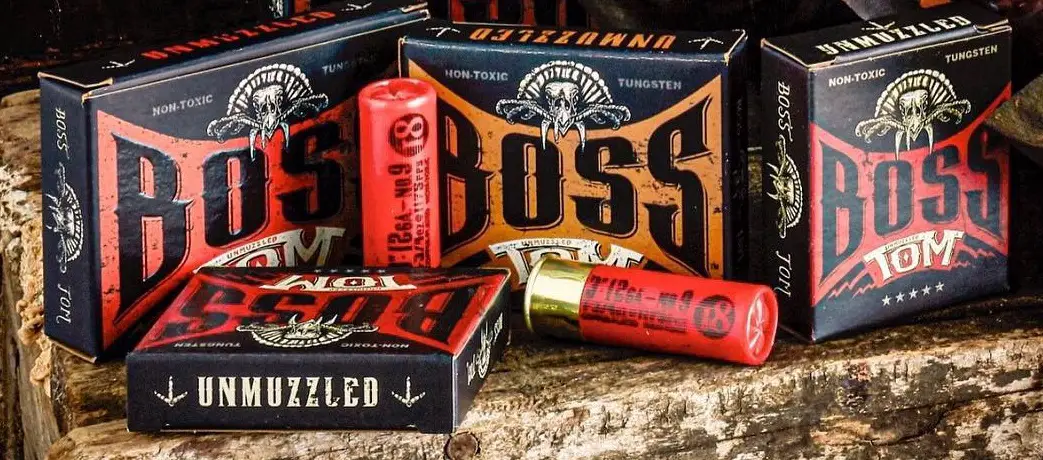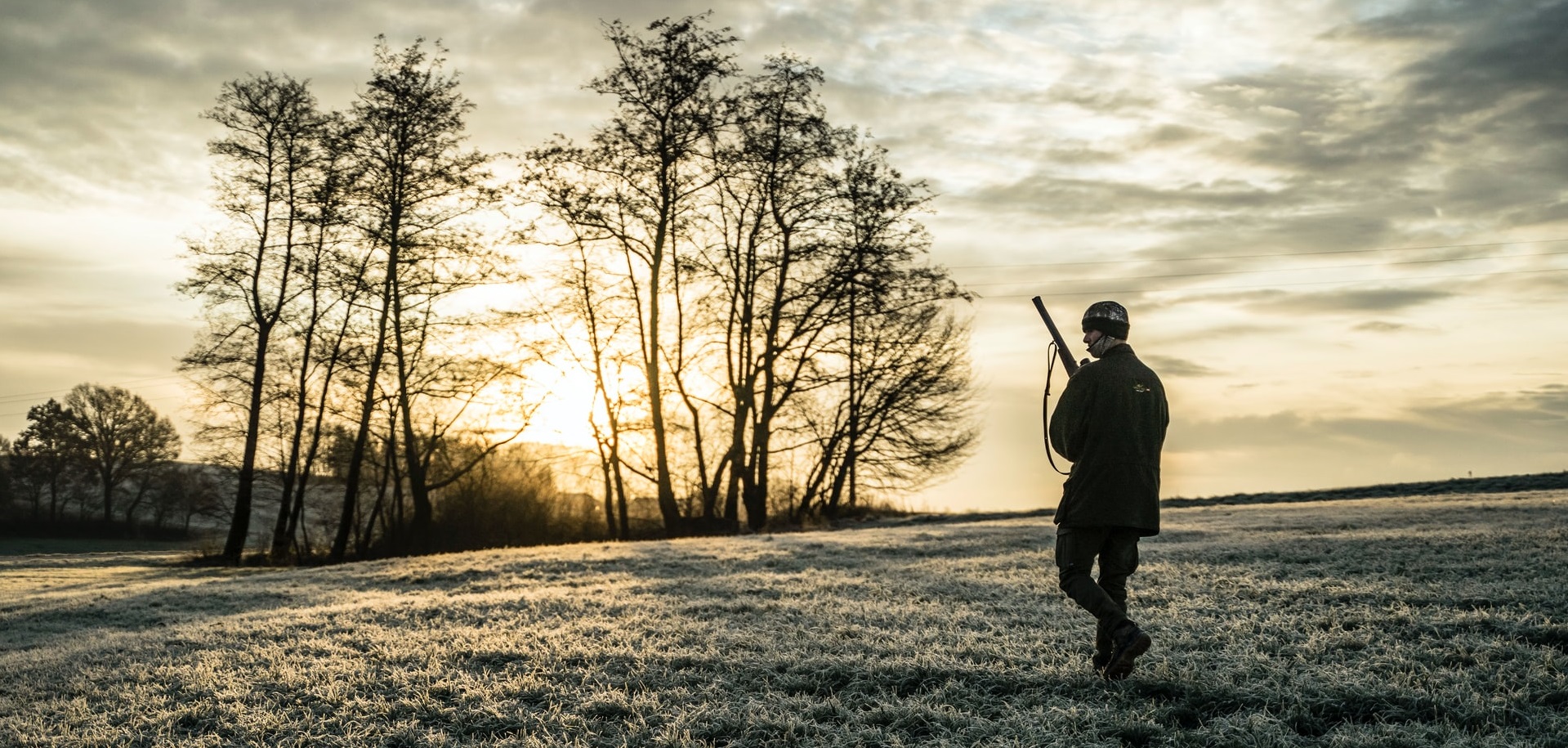Disclaimer: Tetra Hearing kindly gave these devices to do this review, they also gave me gear and a discount on my Custom Shields, and I am thankful for their support. They are also a sponsor of The New Hunters Guide, and I earn from qualifying purchases using their links and code.
Whether you are hunting ducks, geese, pheasants, turkeys, deer, elk, or anything else, the Tetra Alpha Shields and Custom Shields are a game changer. They are much more than hearing protection. They actually make you a better hunter.
Before I go on, I should say this review is not sponsored nor requested by Tetra. These opinions are my own. And I have indeed used the Multi-Pursuits AlphaShields on every hunt I have been on for last 1.5 years or so. I have even used them for frequent shooting hunts like waterfowl and upland birds, for hunts that involve less shooting like turkey and deer, and also while archery hunting. Why do you ask?
You Can Hear Better
Tetra has done far more than just make hearing protection. In fact, hearing protection is not complicated, you can protect your hearing by putting your fingers in your ears or using foam ear plugs. The Tetra’s preserve the experience of the hunt, allowing you to hear like normal. Actually, better than normal.
Tetra studio recorded thousands of different game calls and sounds and digitized those sounds to develop complex audio algorithms. So when a duck quacks or a turkey gobbles the Tetra devices recognize those sounds as game sounds and amplify them for the hunter. So whether it is the whistle, quack, or honk of waterfowl, turkey calls, pheasants flushing out of the bushes, or even the sounds of deer walking through the woods, you will be able to hear them more clearly and from further away by using the Tetras.
The AlphaShields can amplify the sound of a birds wings flapping while simultaneously filtering out sounds that you do not want, like wind noise. In fact I never notice the wind blow while I am wearing these, not something I can say for any other electronic hearing protection I’ve used.
You can either buy the Tetra device that fits the game you want to hunt, or pay a little more to get the Multi-Pursuits and have them programed with multiple game sound profiles. For example, You can just tap side of the Alpha Shield Multi-Pursuits to cycle between the sound profiles for deer, waterfowl, turkey’s and more.
Customized To Your Hearing Level
The other things the Tetras do is fix your hearing. When you order them, you take a brief online hearing test to determine how well each ear hears. If your left ear is weaker, then they will turn up the volume in the left unit so you can hear perfectly with both ears. If both ears are bad they can turn them both up so someone with very poor hearing can walk into the woods with perfect hearing.
Tetra’s are giving so many hunters new life and passion. Like those who never again thought they would hear a turkey gobble, or a deer walk through the woods, or a wood duck whistle.
They essentially work like hearing aids, because they are. They use state of the art hearing aid technology coupled with Tetra’s patented game sounds recognition and amplification technology to create the most amazing piece of hunting equipment I’ve ever seen.
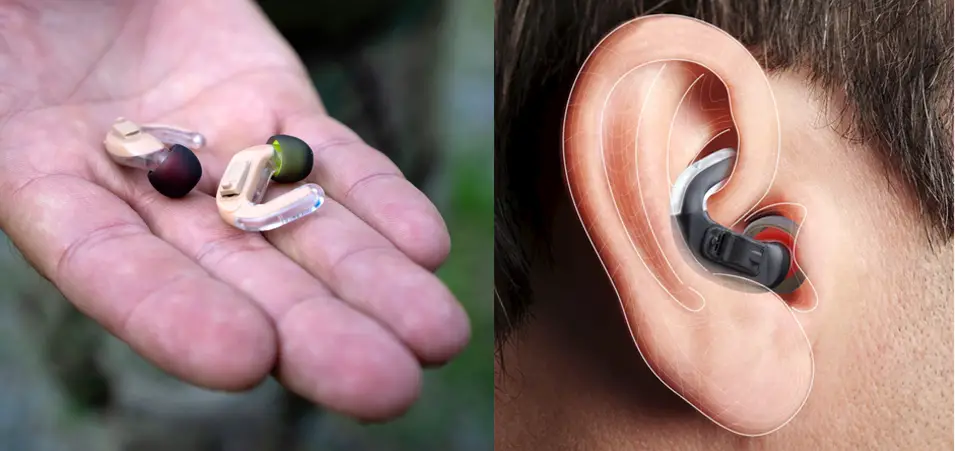
The hearing aid technology alone costs around $6,000 per pair if you were to buy medical grade units with the appropriate inspections, certifications, and insurance paperwork. Since Tetra’s devices are classified for sporting use, not medical use, they can produce them much cheaper using the same components. Did I mention that the company was founded by a Doctor of Audiology who became nationally renowned for treating hunters who injured their hearing?
Remarkable Hearing Protection
And as amazing as all of that is, it is not the most important part. The best part is when that flight of ducks come in which you heard from a mile away, you hear their wings flapping on their final approach and you hear your buddy whisper “shoot now”, you draw your shotgun loaded with magnum shells using a ported choke tube and pull the trigger… What do you hear next?
I can only relate it to the sound of a BB gun, a pump action air rifle. With every trigger pull the muzzle roar is reduced to the plink of a child’s toy. But then immediately the full volume comes back and you hear those ducks hit the water with a big splash. You then realize, you’ve never heard that sound before. Your ears were always in shock from the shot, you may have heard the bird hit the water in the past like a wet thud, but never the clear subtle sounds of the splash.
Whenever the Tetras detect a sound above safe volume range, like a gun shot or just as dangerous, excessively load calling, they dial back the volume to safe levels. They become instant ear plugs when you pull the trigger. And you would be surprised how much better you can shoot when you are not distracted by the crack of a shotgun over and over.
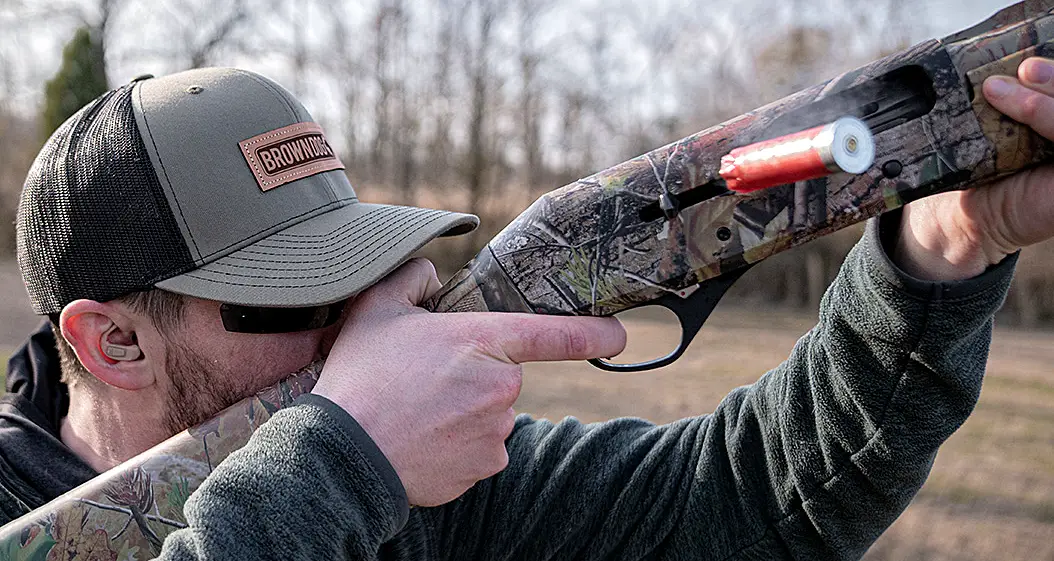
Why It Matters So Much
Alot of hunters do not think they need to protect their hearing while hunting. They feel invincible somehow. But what they do not realize is with every shot you take you are potentially knocking off a bit of your hearing. It may not be perceivable for awhile, but often there comes one shot that changes their hearing forever.
The doctors told me that the proteins that make up the hearing structures in every person’s ears vary in strength. For some people they fall apart easier than others. For other people they are much more robust and can take more of a beating. But what tends to happen is the more a person abuses their hearing the closer they are to the brink of loosing it.
Often it occurs when shooting a new gun, or from a new blind, to with a new choke tube, or perhaps sitting next to someone with a new gun. Or there are at a bad angle relative to another person shooting. One shot, then half of their hearing is gone. They hear ringing in their ears thereafter, and there are endless headaches, migraines, and worse.
Historically the only option was ear plugs, which just ruined the experience of being outdoors. Then some electronic options emerged but they were woefully lacking in preserving the sounds of the hunt and did nothing to improve the experience. Tetra came on the scene and began to change peoples lives. The were like the answer that everyone, myself included had been longing for.
My Journey To Find Tetra
I will never forget the day that I came back from a waterfowl hunt having shot half a box of shells at geese and ducks of all types. I was nearing my car when a flight of mallards flew overhead. As a hunter I wanted to shoot, but I really didn’t want to shoot. My ears were ringing, and I felt terrible about it.
I realized that day that I could not do this anymore. Something was going to have to change or I was going to have to stop hunting waterfowl and other game, if I wanted retain my hearing. So I began searching for something, anything, that could help me. I had already ruled out ear plugs, they sucked the fun out of hunting.
I found some cheap electronic hearing protection and tried that. It did protect my hearing but it was lousy at everything else. I could not hear things well, they constantly fell out, there was an unending hissing sound, and other issues. I was discouraged. And then I got my hands on a set of Tetras. It was game changing. They were everything I had wanted, everything I needed for duck hunting, turkey hunting, and so much more!
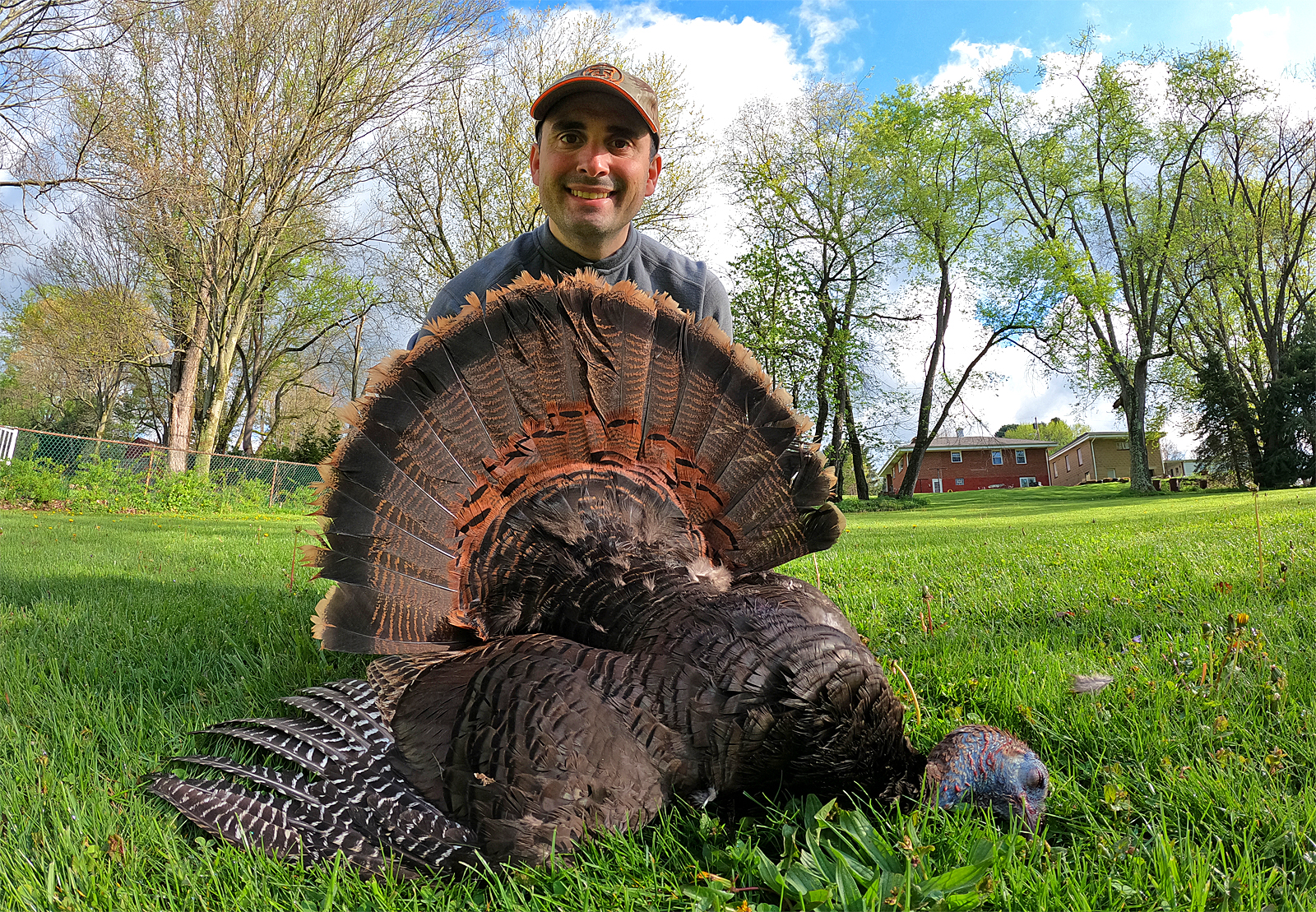
Not only did they protect my hearing and preserve all of the enjoyable sounds of the outdoors. They helped me to be a better hunter. I became an instant advocate. I saw them as the answer. Something every hunter should invest in. Something that could protect new hunters so they could still have perfect hearing once they had hunted for 40+ seasons. And today, about a year and a half later, I believe that just as strongly, if not more.
How To Pick Your Audio Programs
You can have up to six audio programs on the Alpha Shield Multi-Pursuit or Custom Sheild for the different kinds of game you are hunting. These programs amplify the sounds these game animals make and filter out unhelpful sounds for those hunts. The programs include waterfowl, turkey, deer, elk, upland game, dangerous game, predators, sporting clays, land management, etc. Each program has a regular level and a boost level which further amplifies your hearing with that program. Both the regular and boost programs are great to have for your favorite game. But it can be hard to pick the best options for your second and third favorites, etc.
I made this video to help you better pick the programs that are best for you. And yes the discount code in the video is the same one listed further down on the page. I also did a full-length overall Tetra video review further down the page as well.
My Tetra Tips
I have used the Tetra’s to hunt everything, ducks, pheasants, geese, crows, deer, turkeys, etc. They are an indispensable piece of my gear, and I enjoy hunting so much more because of them.
When you first get a pair, they take a little getting used to. Mine felt like they fit too tightly, even with the smallest ear buds on. But after a few hunts I realized I didn’t even notice I was wearing them. The fit is exactly what I needed, to make sure they didn’t fall out in the field. My ears seemed to adapt to them size wise. They are very comfortable now.
When you first put them on, you will likely do so indoors. And fair warning, they do not sound great indoors. Their sound amplification technology is meant for use outside. At first I thought there was something wrong with them, wearing them in my dining room. But then I walked outside, heard a bird chip, and realized they are exactly what I wanted. That said, they do take a little getting used to. But it doesn’t take long, a couple hours or a couple hunts and you don’t even remember they are on anymore.
The foam or silicone tips that go into your ears do not last forever, and they make replacements for them, but they are actually compatible with many kinds of foam and silicone ear bud tips. You may already have some you really like that will fit and work perfect.
You can use HSA (Health Savings Account) funds to buy Tetra’s. So, for some people that could defray the cost or completely pay for a pair. I used to have an HSA and had to use or lose the funds every year. If I had that now, I would by a new pair of Tetra’s every year!
Tetra Hearing Discount Code
After I decided I was going to do this review, I reached out to Tetra to ask some questions and clarify some points. They were kind enough to provide me with a code you can use to get a Free 2-Year Service Plan. Which has a $275 value.
Just add this Service Plan to your cart when purchasing a device and use this code at checkout to get the service plan for free: NEWHUNTERSGUIDE
That stacks on top of any sales or discounts Tetra is running. The code only works when both the service plan and a set of Tetras are in your cart at the same time.
The Big Take Away
It is true that the Tetra’s are not cheap, they cost as much as a good firearm. But my advice to many new hunters has been this. When you are ready to upgrade your next rifle or shotgun, hold off on doing that for another season. Invest that money in a pair of Tetra’s first. A new gun can only do so much to help you hunt better.
Tetra’s can do more to make you a better hunter, and protecting your hearing today has lifelong value. If you buy Tetra’s to use when hunting now, you could save yourself from needing hearing aids every waking hour for the rest of your life. Check out my full review on the Tetra CustomShield to learn more about how to take things to the next level.
Be sure to listen to The New Hunters Guide Podcast, and check us out on YouTube.
Till next time. God bless you, and go get em in the woods!
George Konetes Ph.D. – Founder and Host of the New Hunters Guide.
The New Hunters Guide is simply what George wishes he would have had when learning how to hunt; a single place to get practical hands on knowledge about different kinds of hunting, gear, strategy, and tips that can improve your comfort and fun factor in the woods.
As a note, Tetra kindly provided me with these devices to do this review, and I am thankful for their support. I have since bought my own Tetras. They are also a sponsor of my YouTube channel and I benefit from use of their affiliate links and discount codes.

